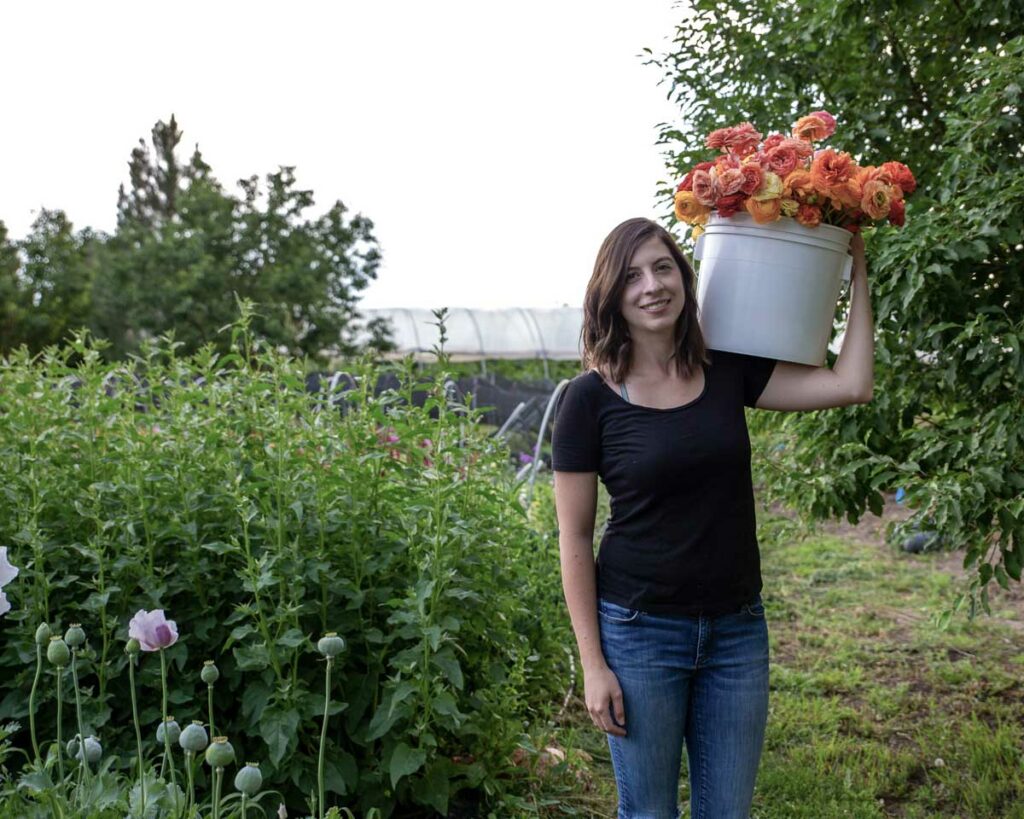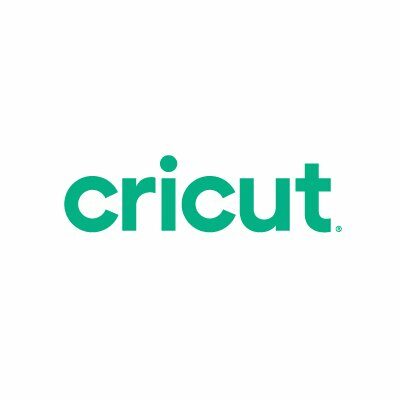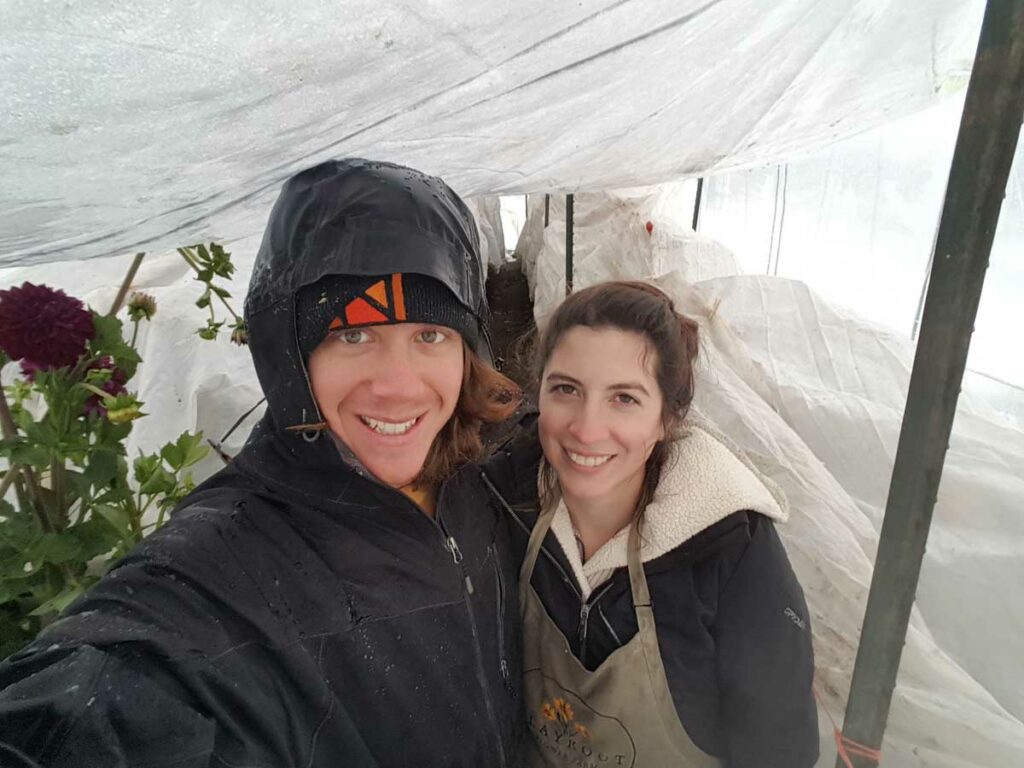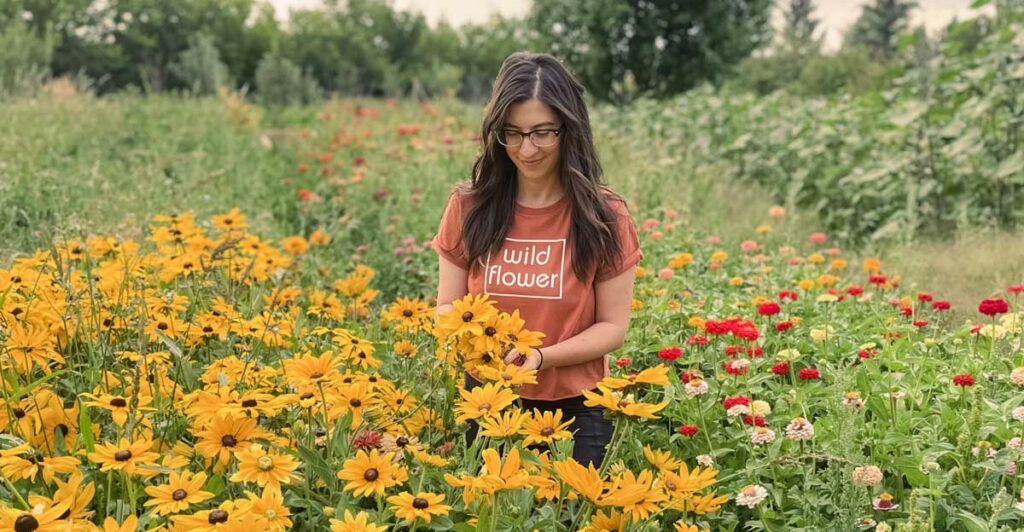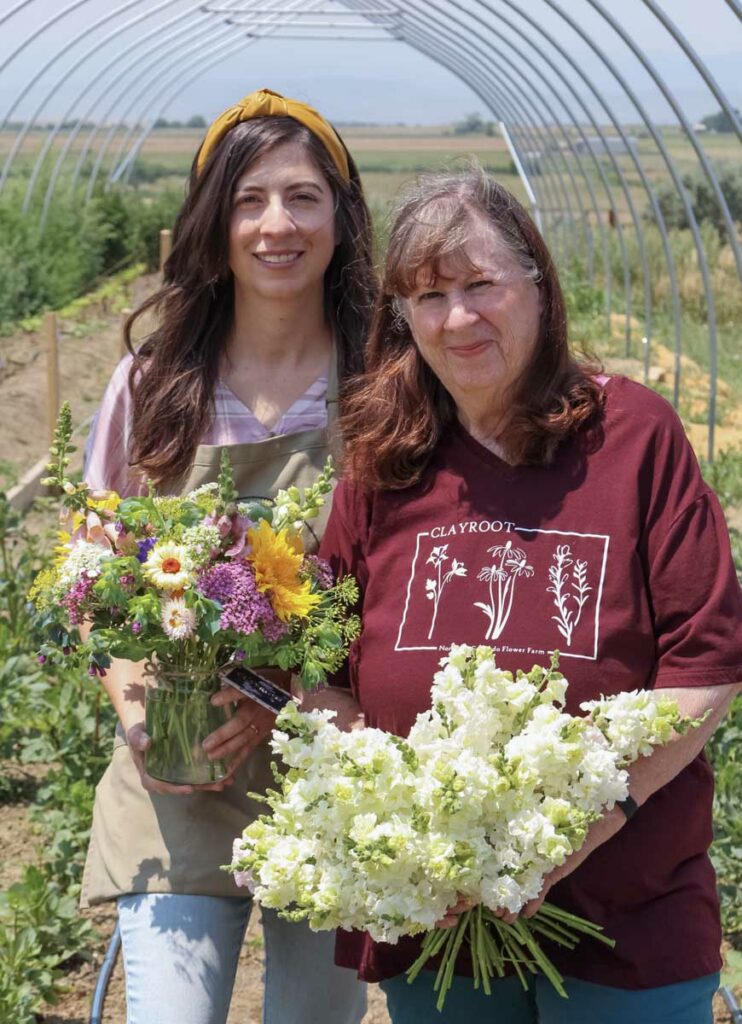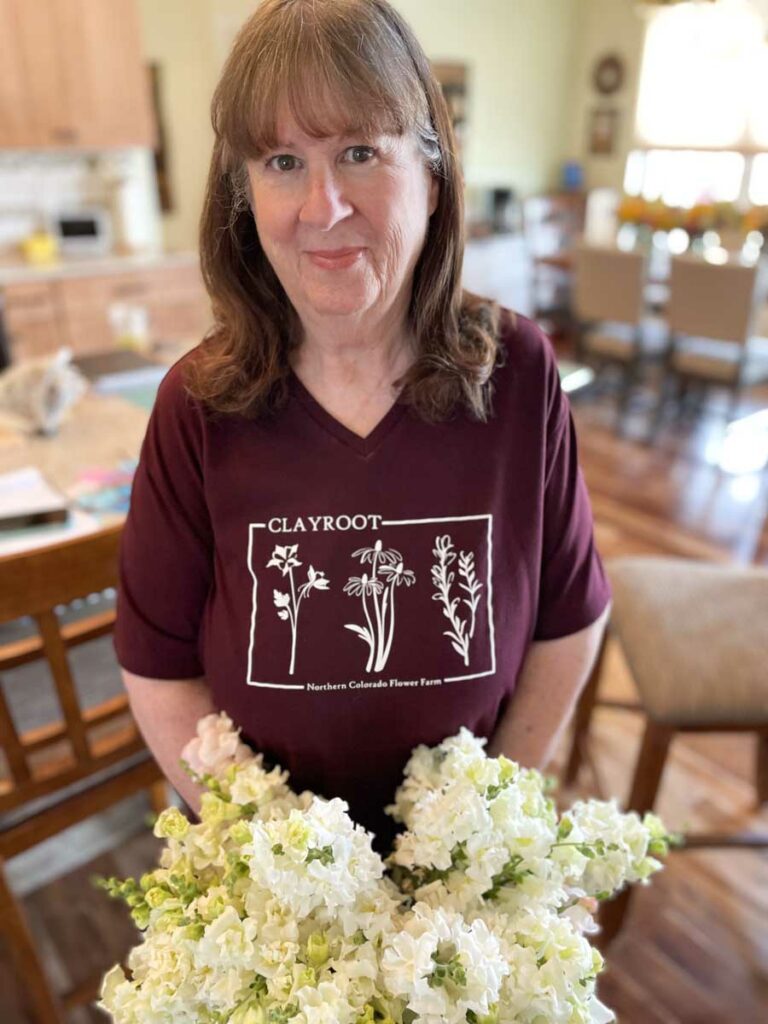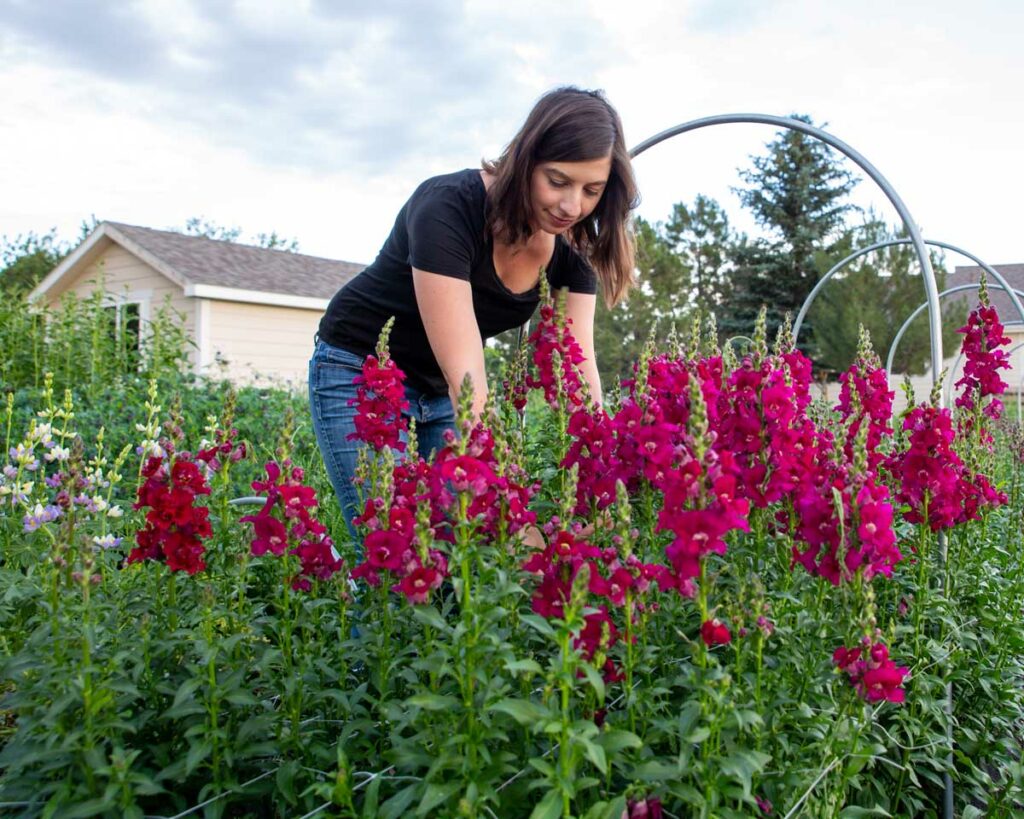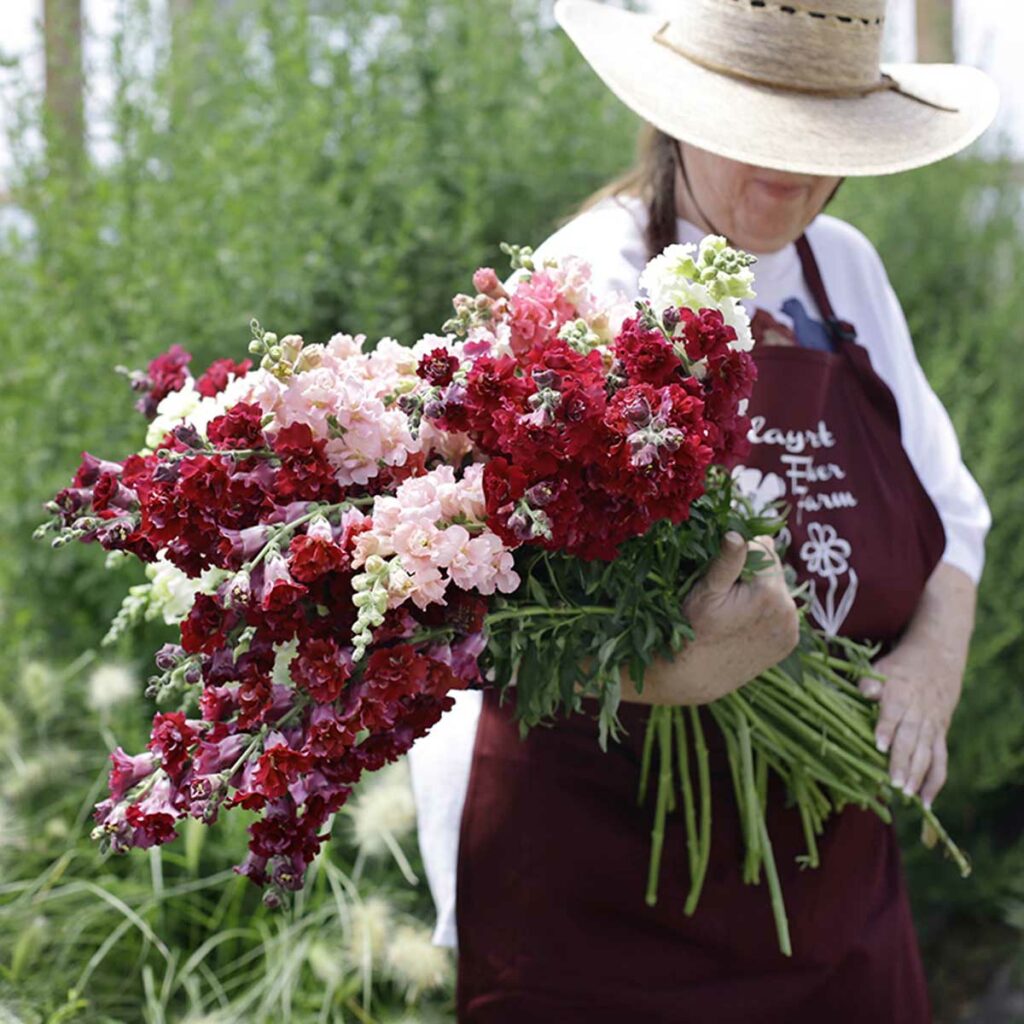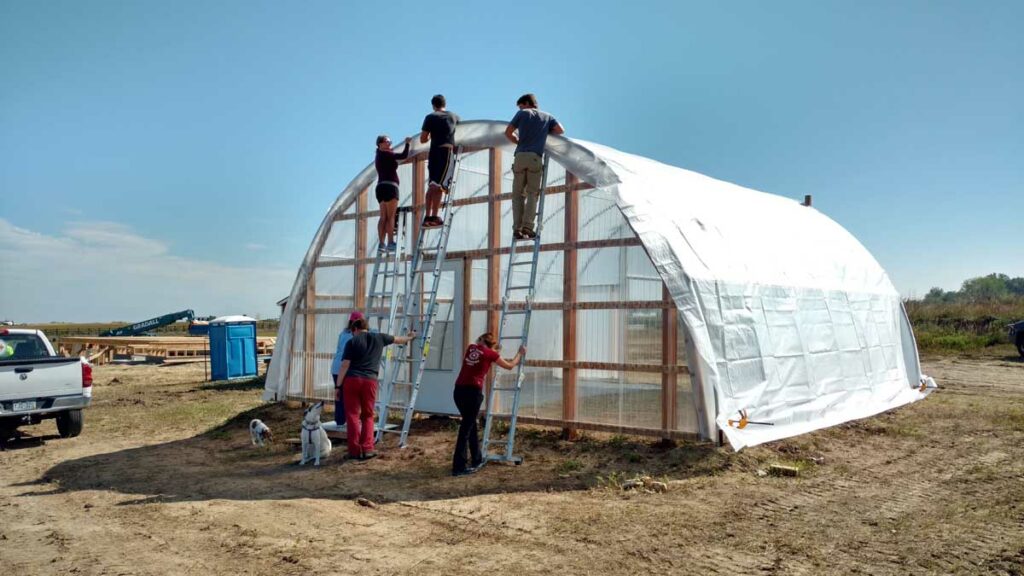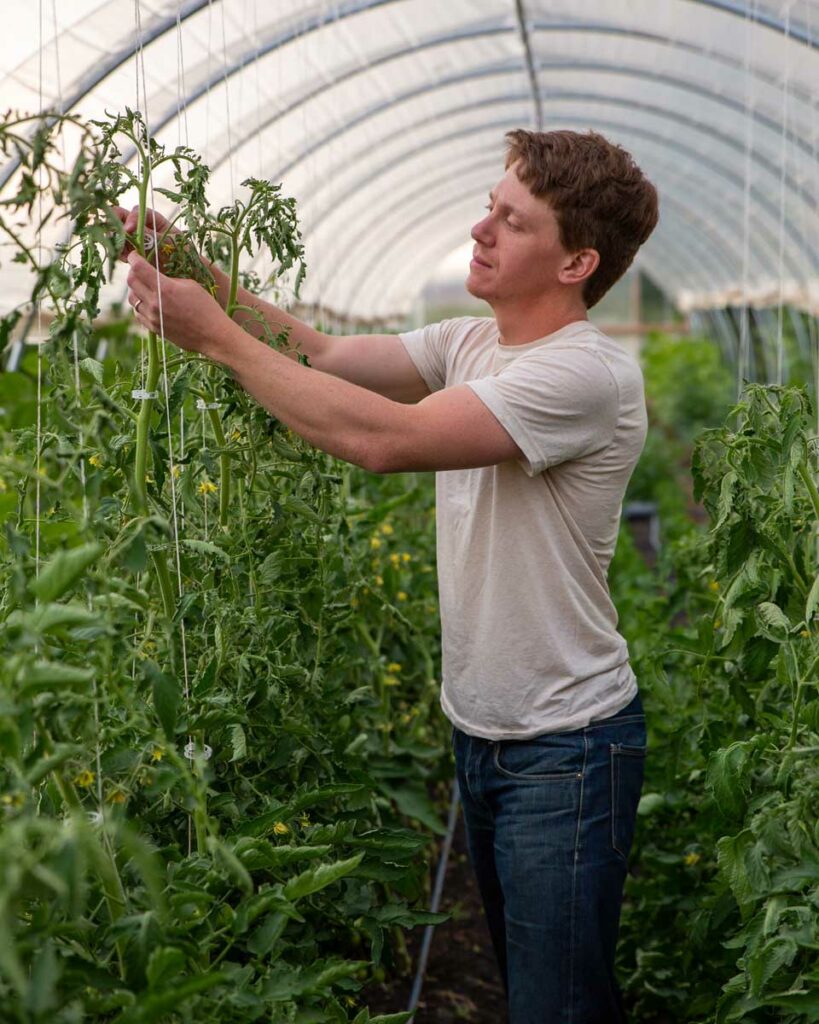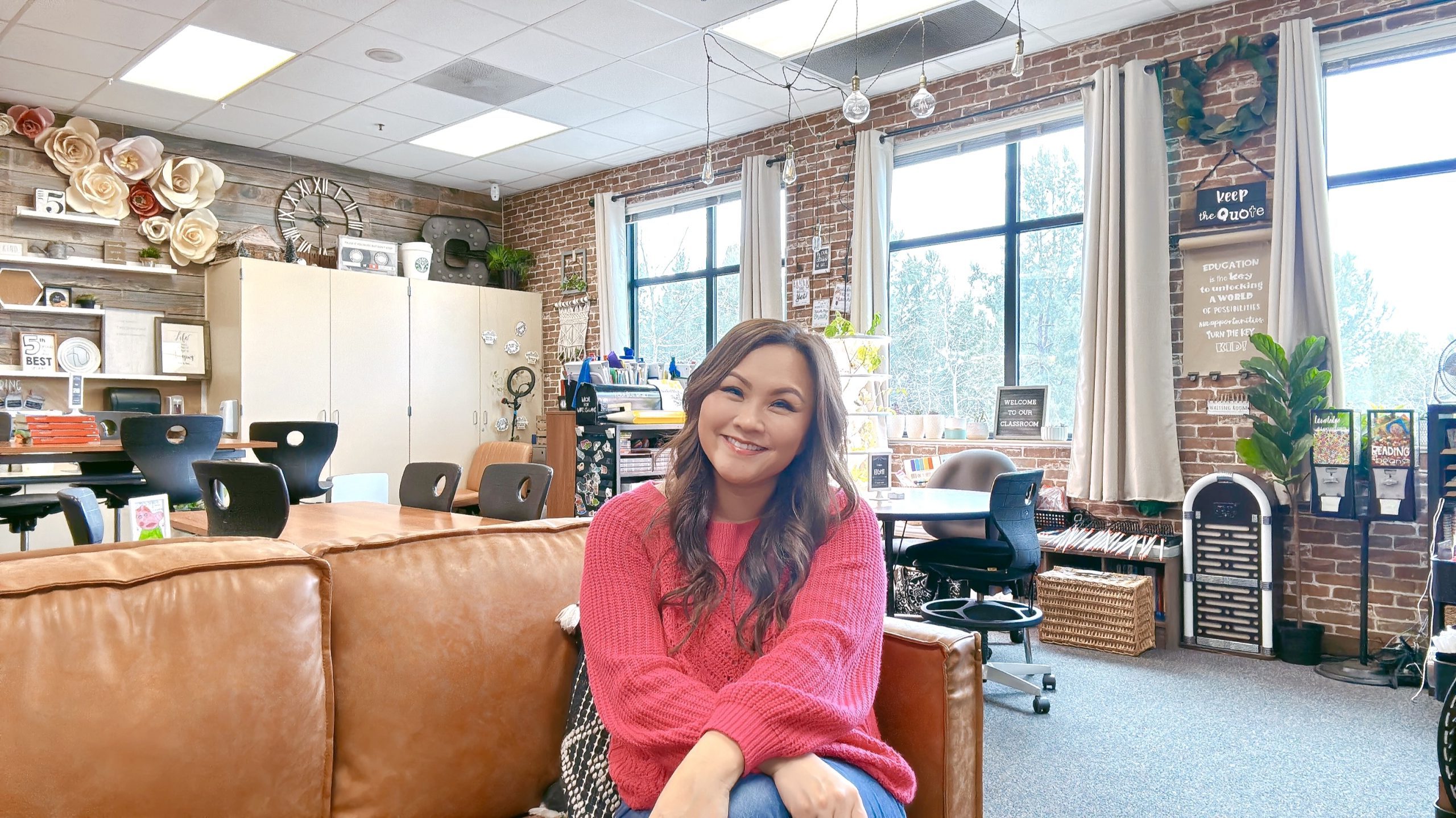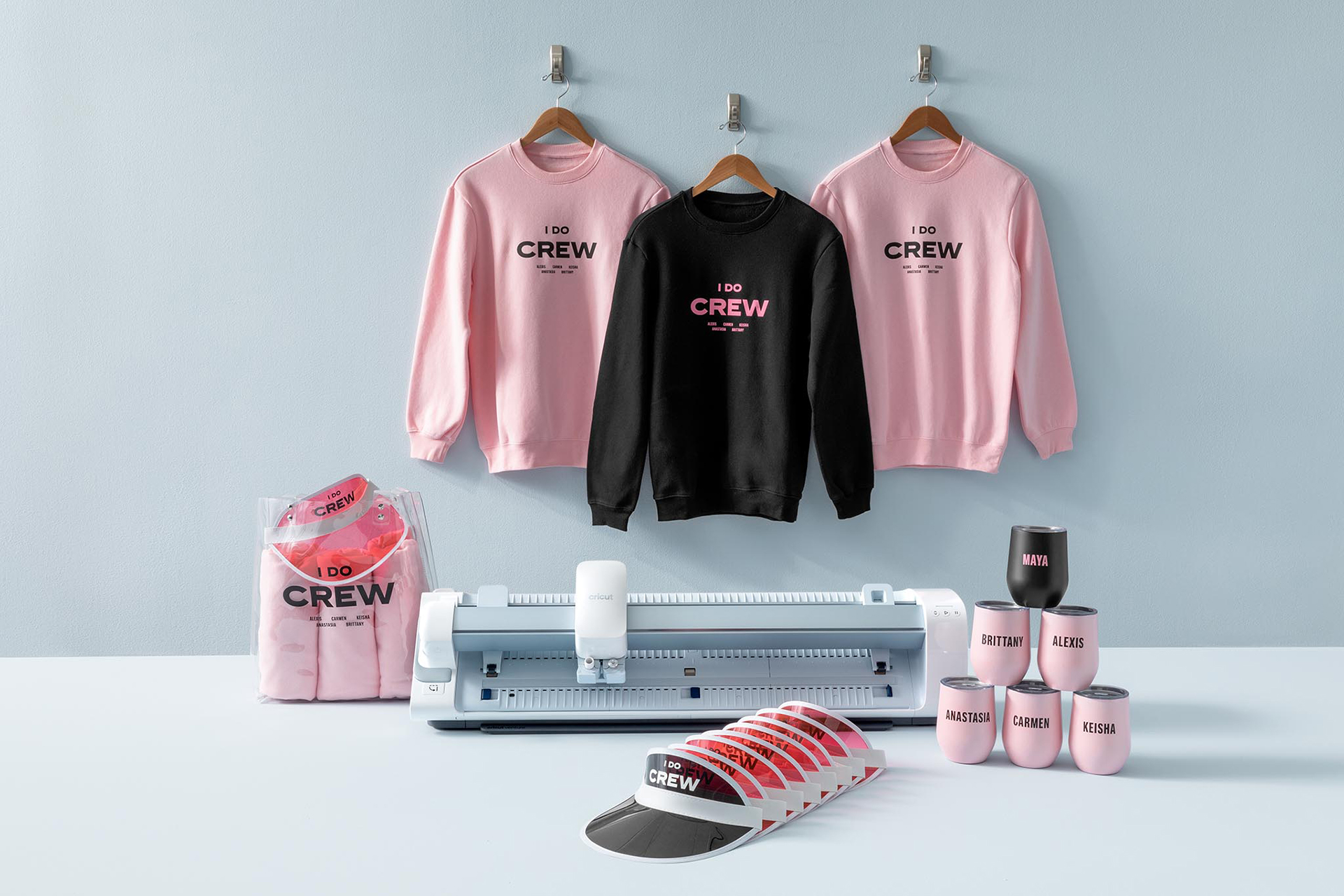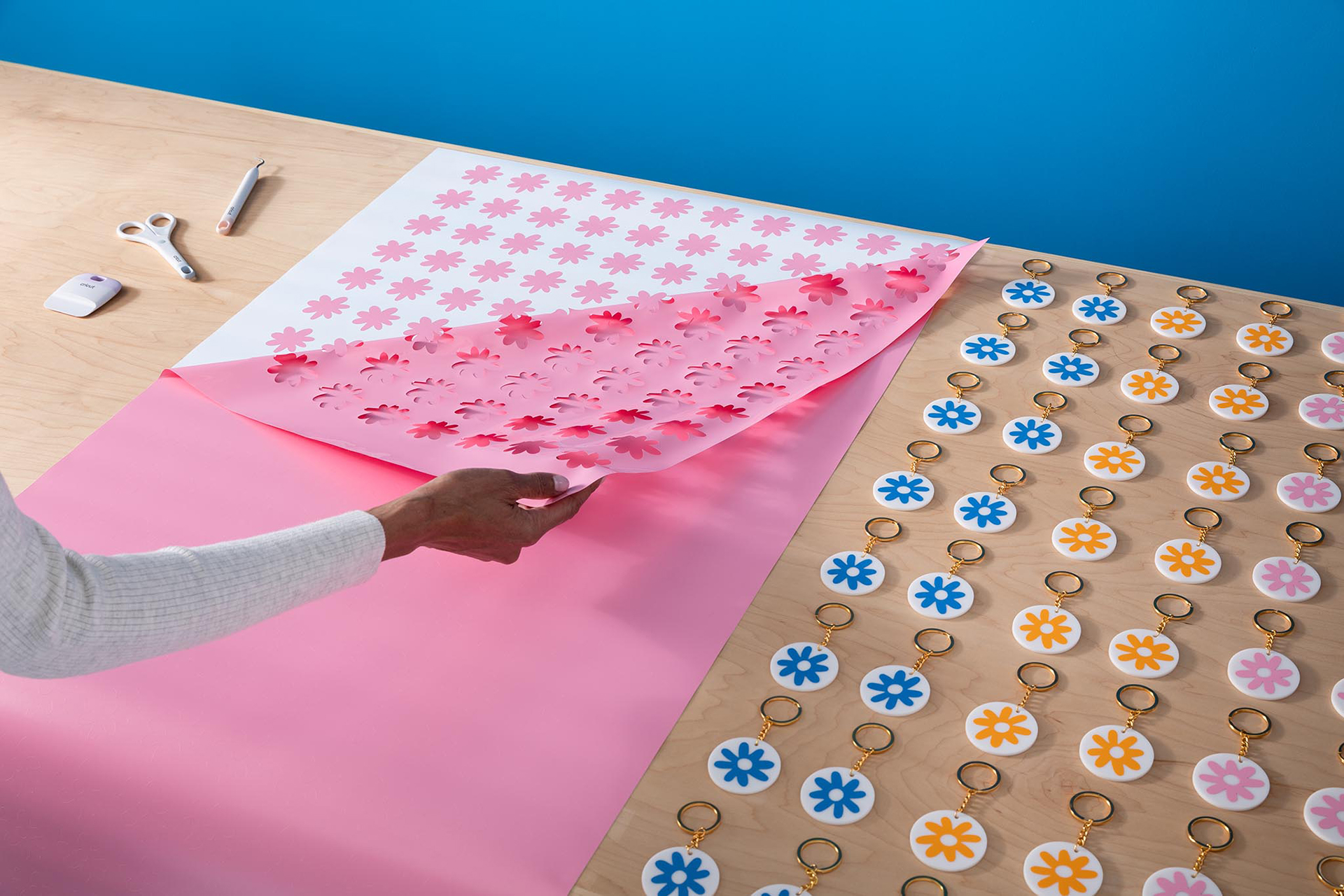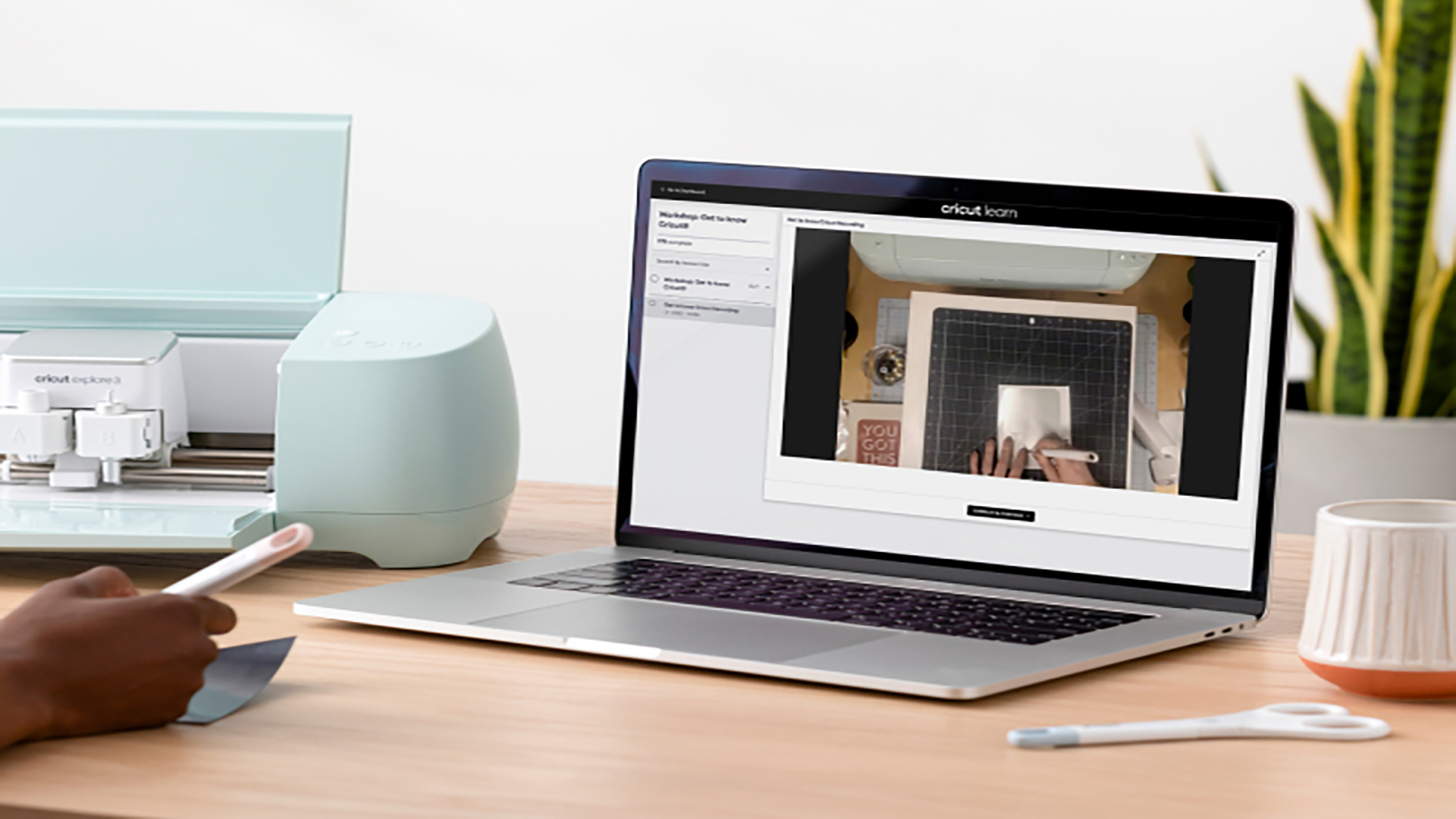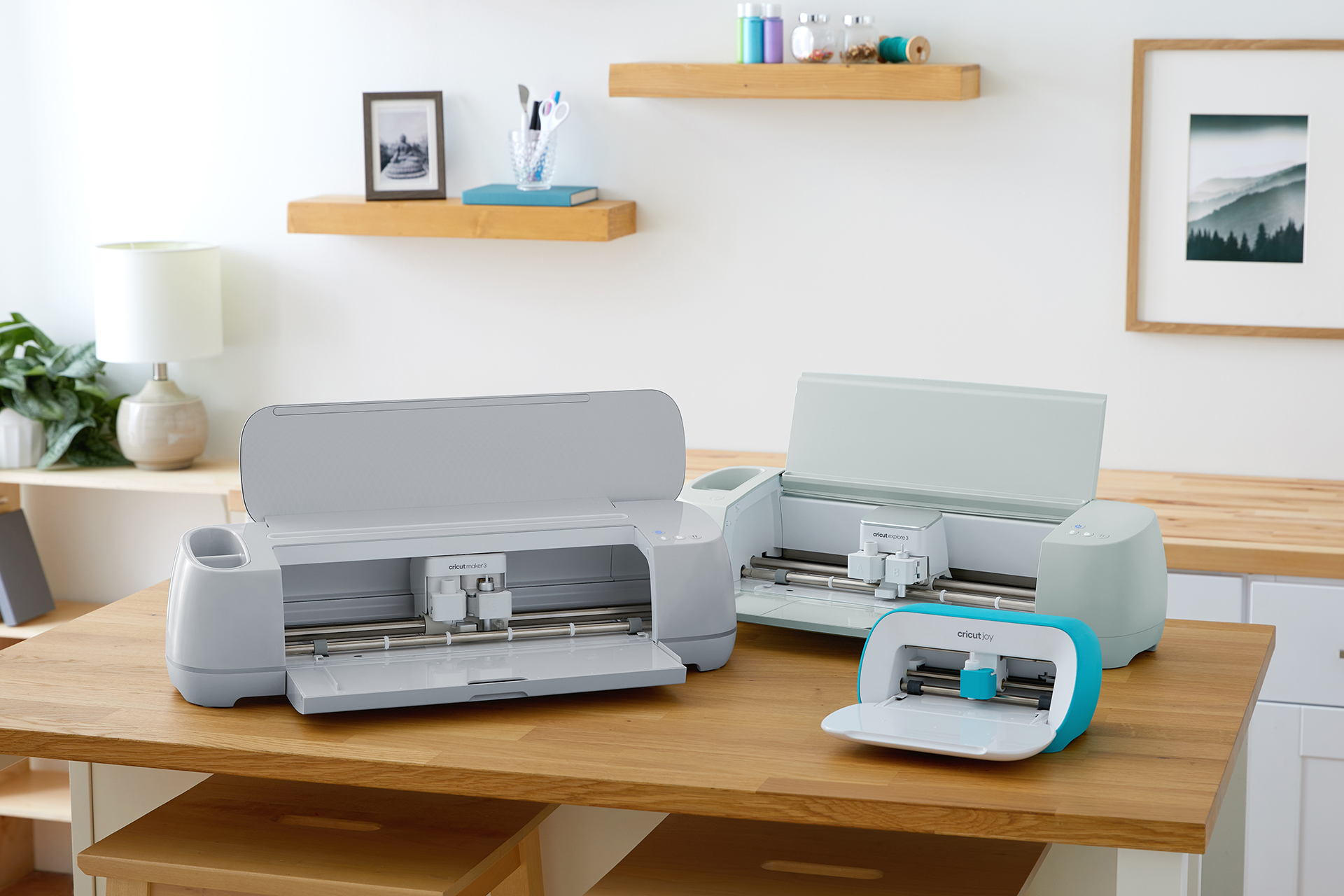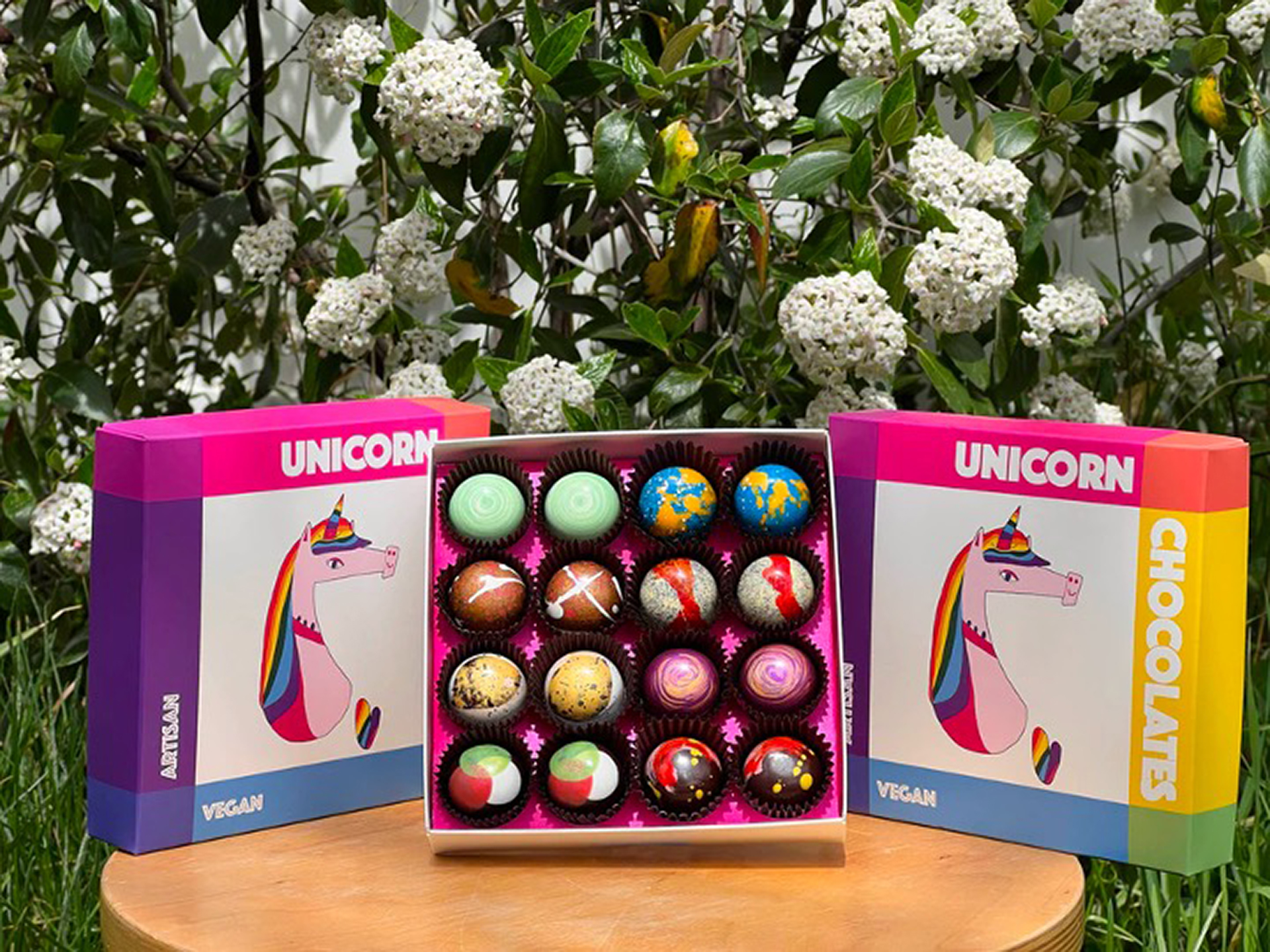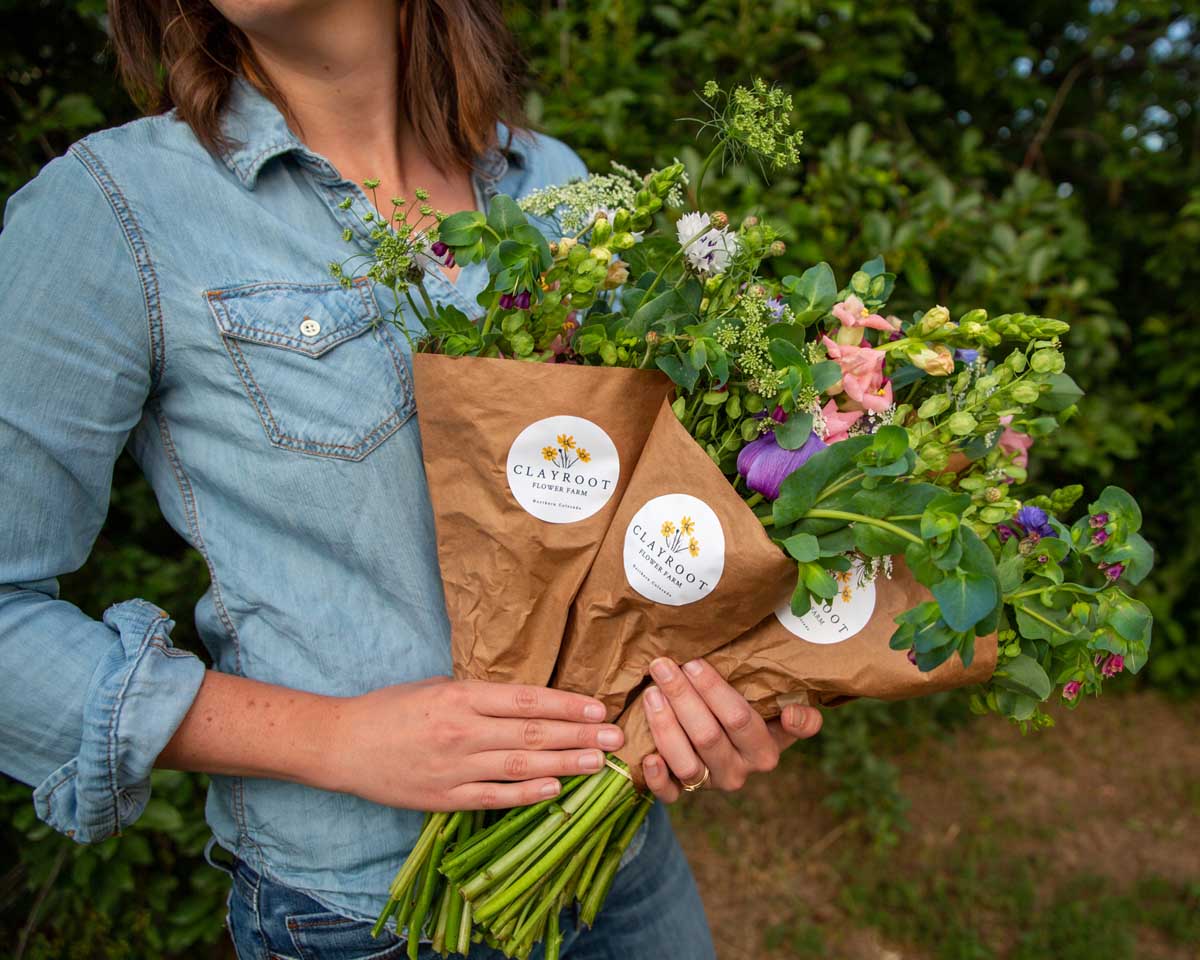
Growing a business with Cricut at Clayroot Farm
In Northern Colorado, about 1.5 hours north of the Denver area, lies Clayroot Flower Farm — a micro-farm that grows annuals, perennials, woody shrubs, and fruit trees.
A family business focused on high-quality flowers and accompanying eye-catching designs, Clayroot Farm is an adaptation of a vision for a business that didn’t quite pan out, and an ever-evolving seed (pun intended, clearly) of endless possibilities, just like Cricut.
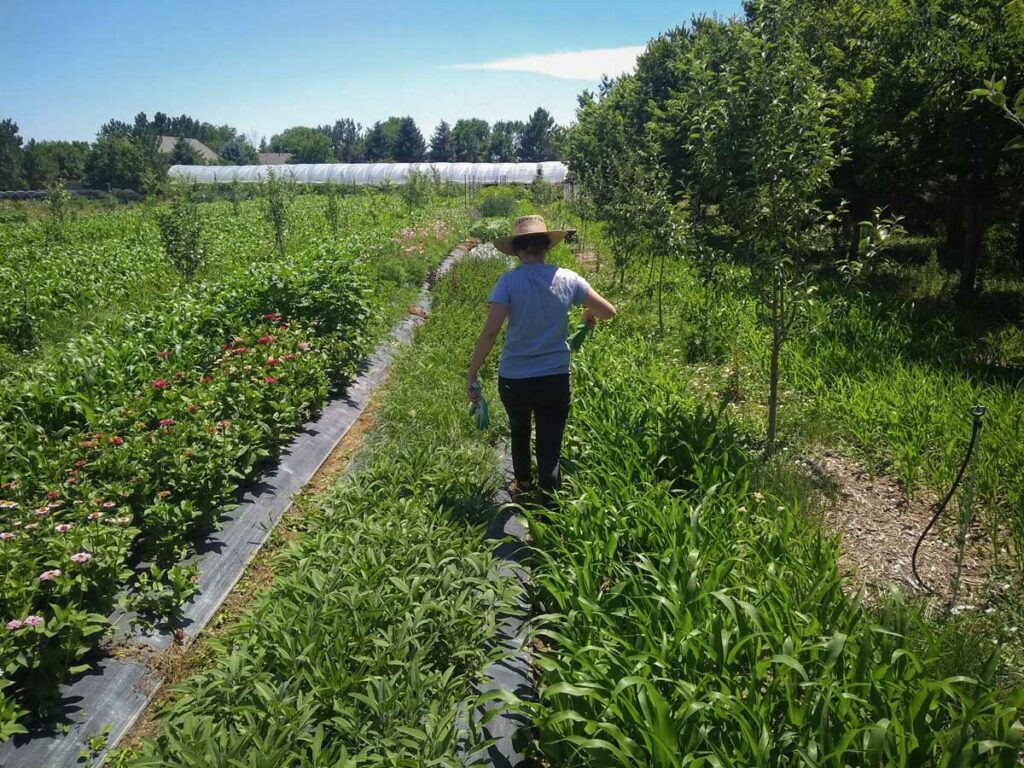
The beginnings
Rebecca and Ben were people that always liked to garden. In college, influenced by the thriving beer community in their home of Fort Collins, Colorado, they had the notion to get into brewing with their own homegrown ingredients. Ben, who did a lot of freelance writing, befriended the local brewing community while covering their stories.
At first, Rebecca and Ben wanted to start an apple cidery. Soon, however, Rebecca said that it didn’t quite turn out how they expected. Apples took a long time to grow, and the local weather brought late frost that would kill the buds. Without apples, there was no cider, and without cider, there was no foundation to build the cidery.
They needed a new idea, and that was when Rebecca found inspiration from another small business in Washington. — they would pivot from cidery to flower farm, starting with three plants at home.
It took off from there.
Adaptation
Rebecca initially wanted to be a veterinarian as a young adult, but as she pursued those studies, she realized it was not the path she wanted to follow. She grew up in a self-described practical family and felt empowered by her exposure to STEM activities. She liked building and creating, and living in Colorado instilled a passion for sustainability in her. Rebecca found Clayroot Farm offered her an accumulation of things she loved: family, sustainability, dynamic workdays, and hands-on creativity.
Rebecca’s mother, Katherine, and Ben’s parents both had access to family-owned land. Katherine lived on the Berthoud farm and Ben’s parents owned the Wellington farm, which was cared for Rebecca and Ben. This helped them overcome one of the greatest barriers to farming – the land itself.
Sustainability
When Clayroot Farm first started in 2018, Rebecca and Ben attended many farmer’s markets and pop-ups to sell their flowers. It was the perfect avenue to gather local support and spread word of mouth. The interaction offered education to customers and furthered relationships for continued business. Having that community behind them was key to propagating their belief in growing only what the local environment can naturally sustain and produce. After all, the name, Clayroot, comes from the idea of building a foundation for the community (root) that is grown in the terroir of the farm (clay).
With Katherine’s background in early childhood education, Clayroot Farm also looks to provide further insights into the beauty of local flowers. Like a winery, or even a cidery, the soil where you grow is representative of your brand. And Rebecca and Katherine want to show how “there’s so much beauty in every week of the season.”
Dynamic workdays
As word spread, and even more as the pandemic took hold, Rebecca and Ben looked for creative ways to propel the business further. Not one day was the same at work.
Rebecca used hoop houses to extend the growing season.
They pulled dahlia tubers before the winter to replant in spring—a favorite of their customers.
Rebecca set up a floral design workshop in the garage, and she bought a Cricut machine to help design, gift, package, and innovate her products.
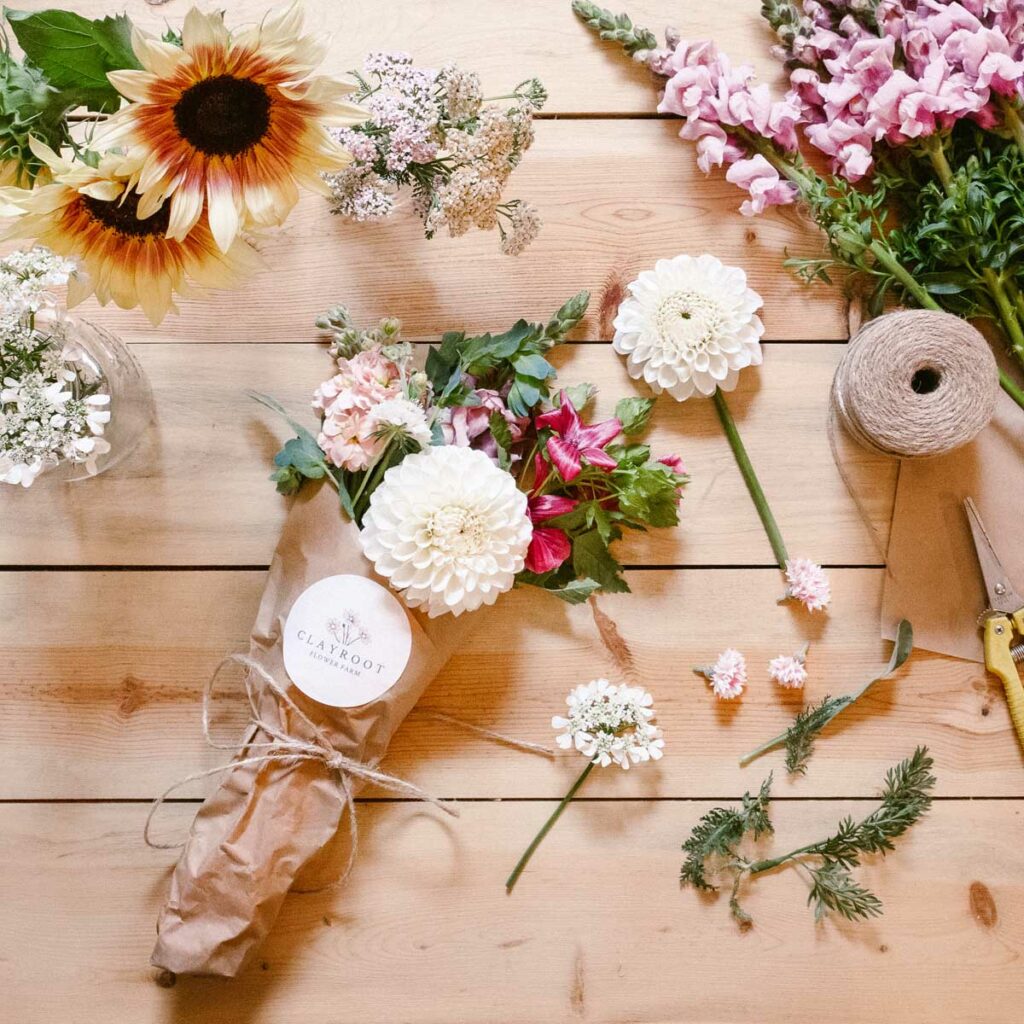
Hands-on creativity
Cricut was an easy solution for Rebecca to create customized tags for various Clayroot Farm products. These tags could be made on-demand and tailored to each specific piece. Whether it was a label for the spring seedling sale or embellishment for a centerpiece, it could be created with Cricut.
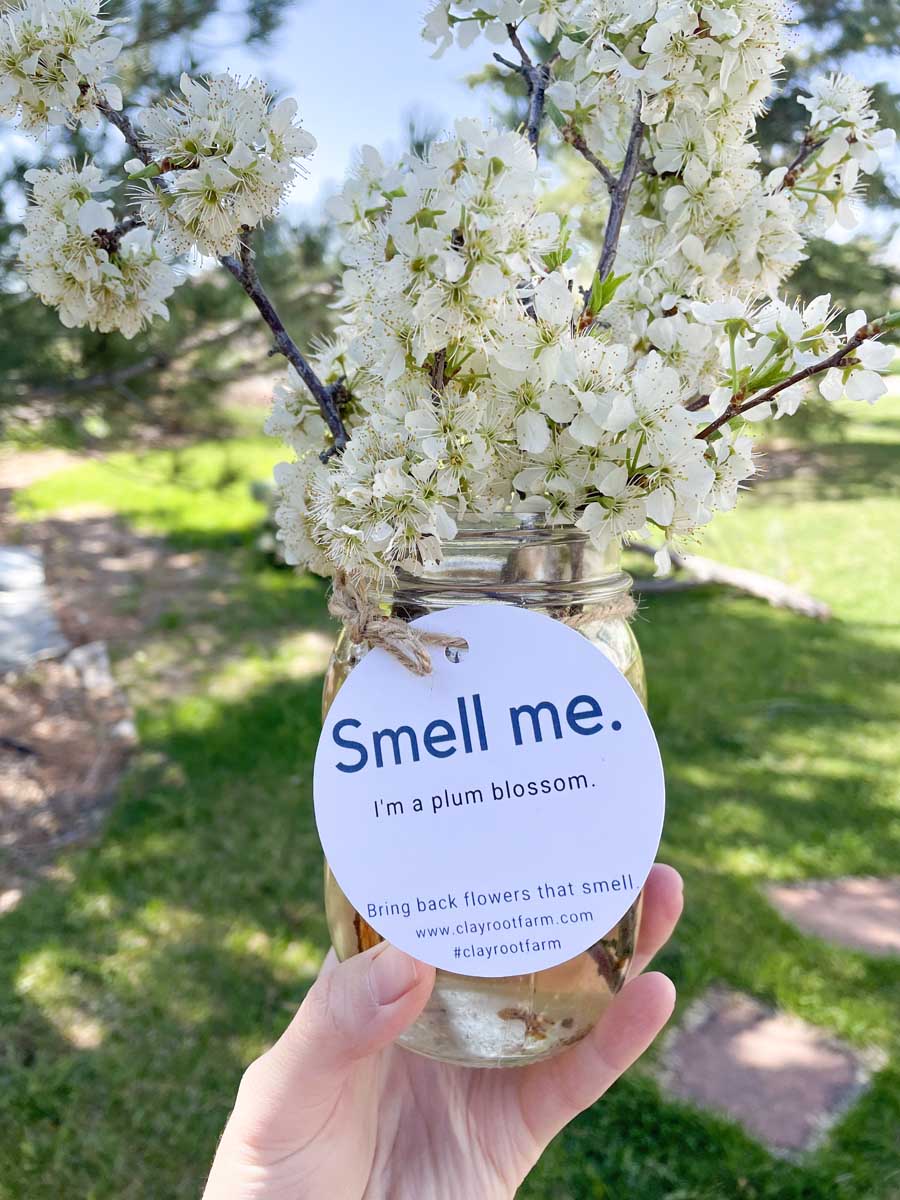
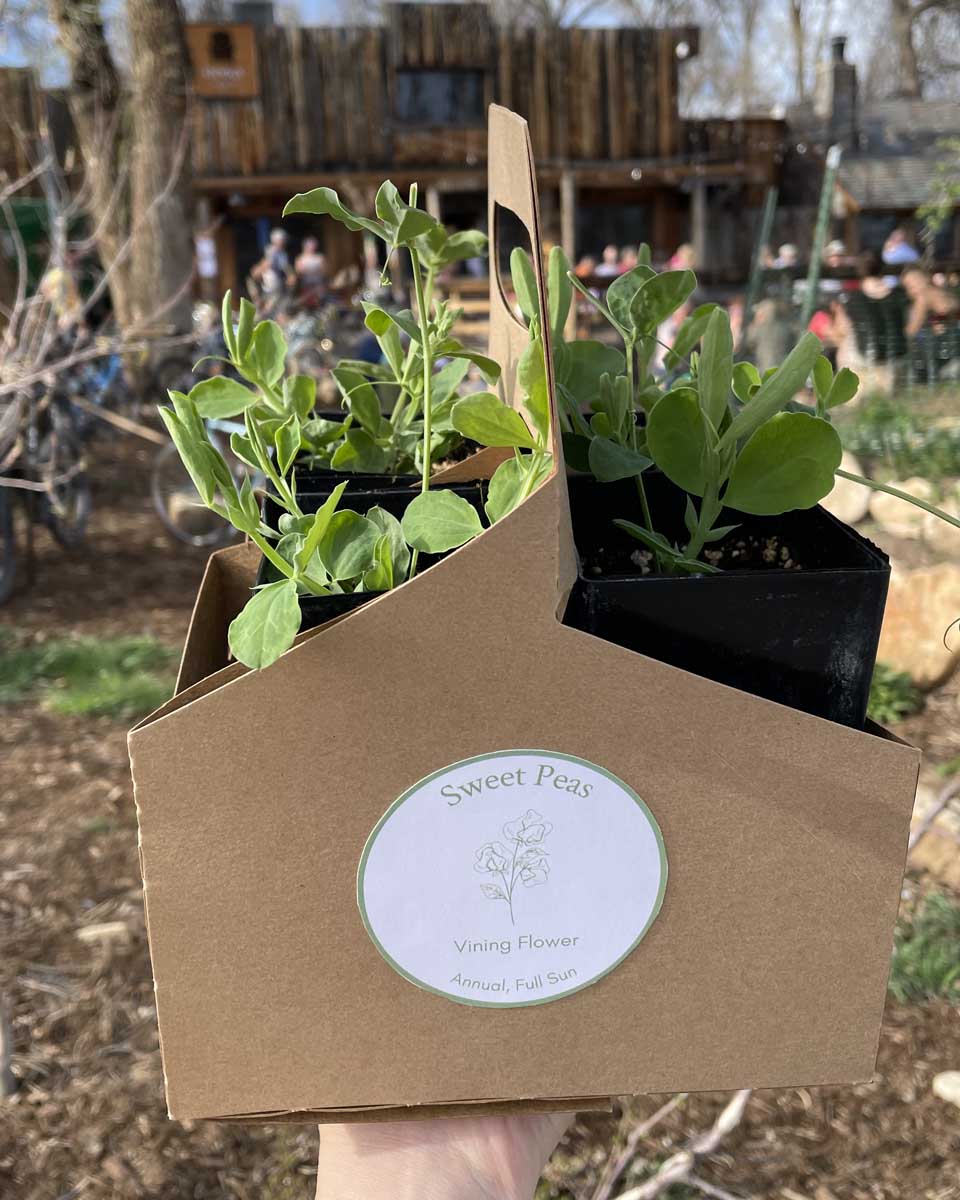
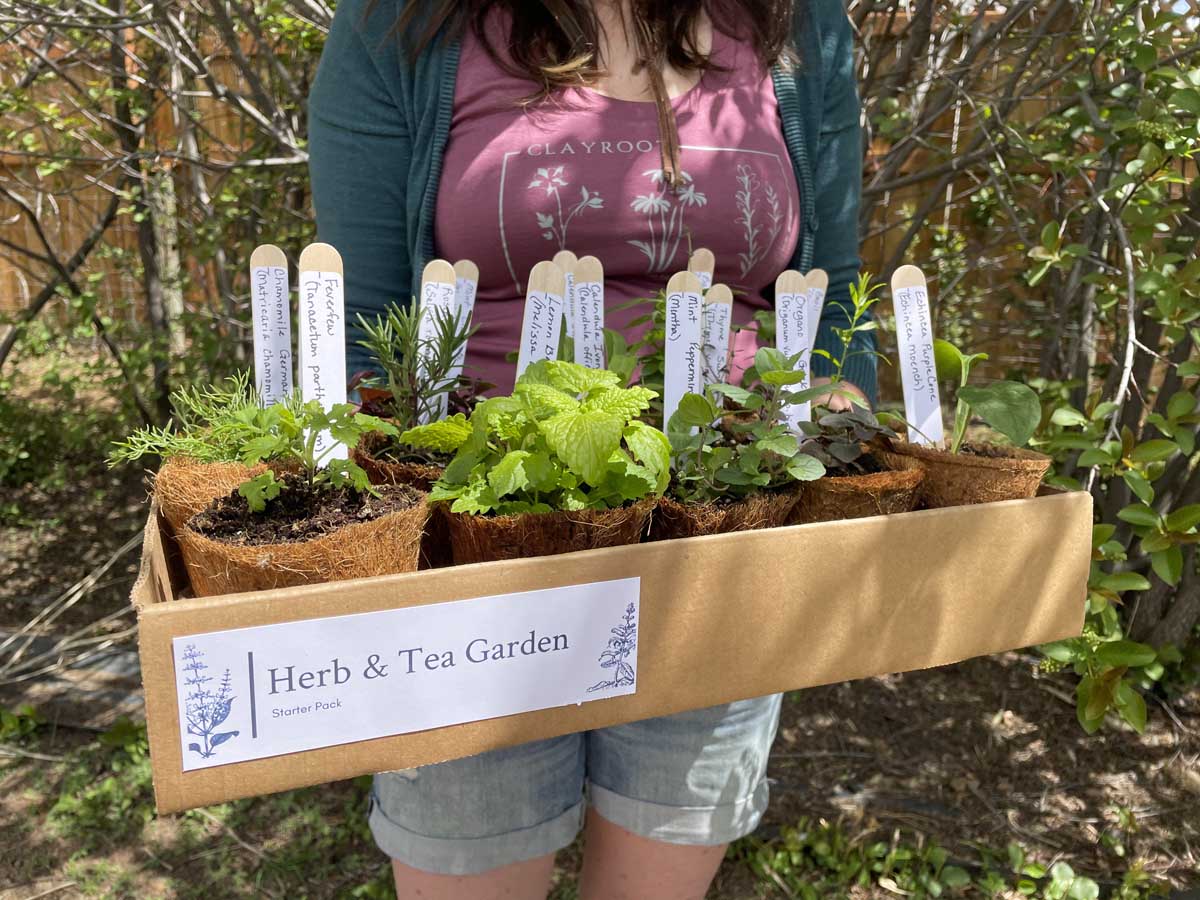
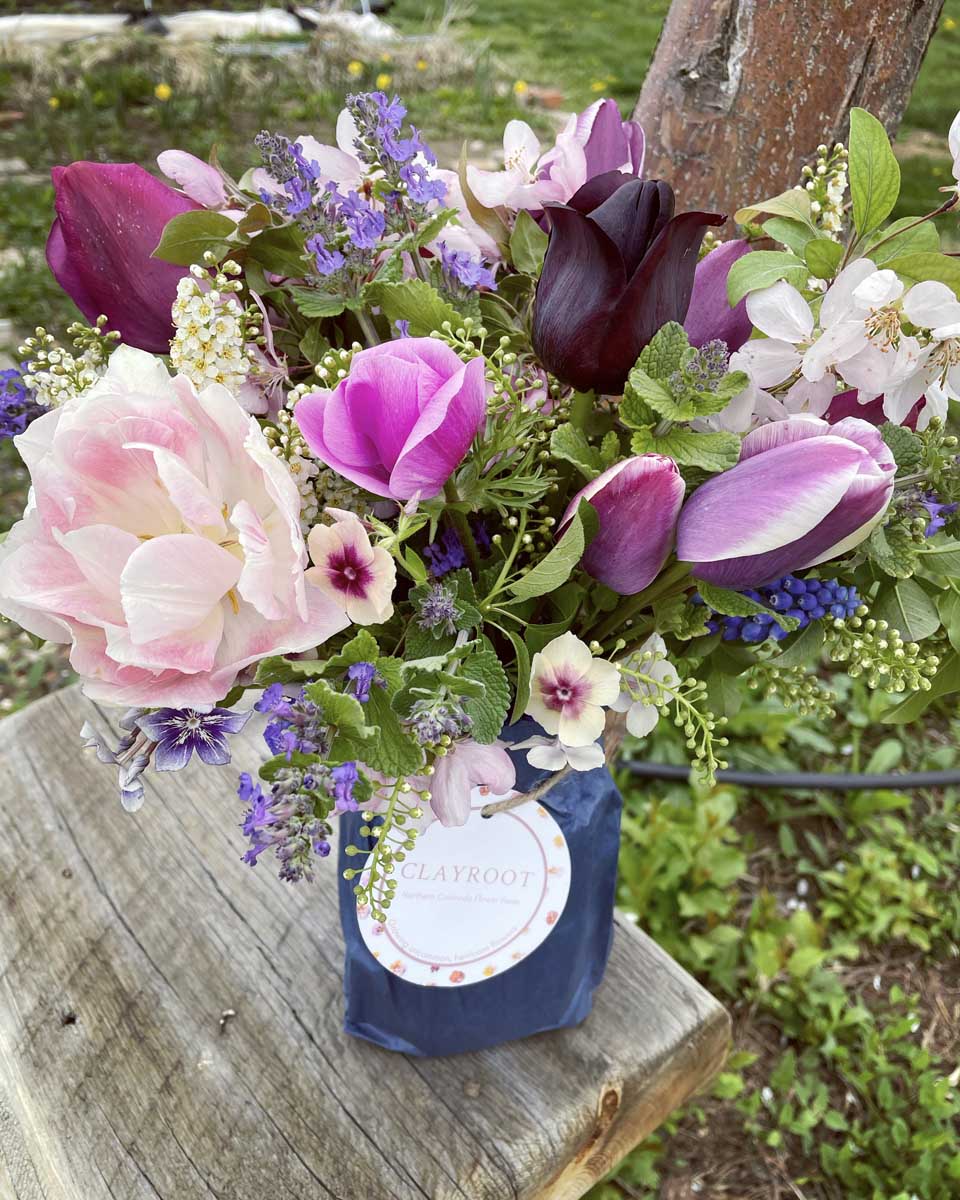
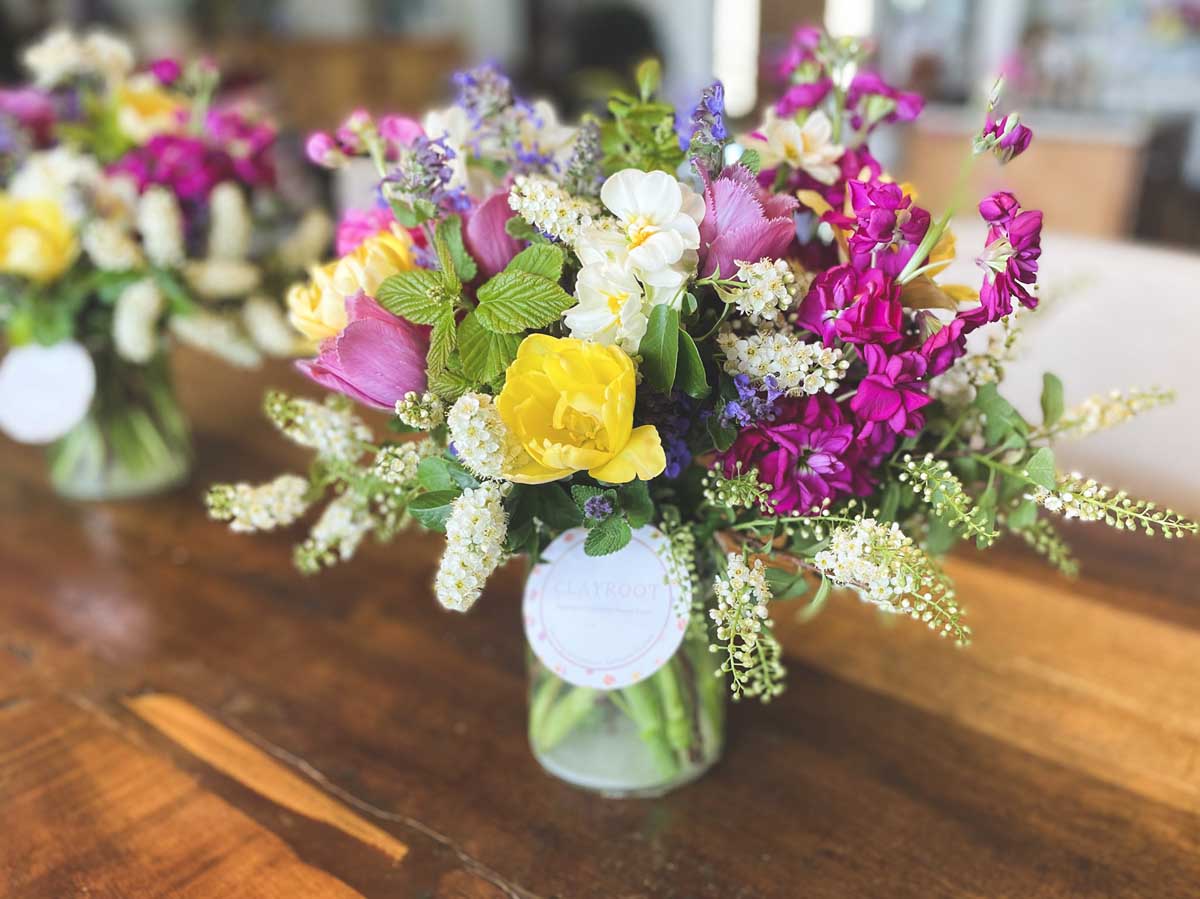
Since then, she fell down a rabbit hole with her cutting machine and experimented with other applications, too. Rebecca started designing and creating unusual mechanics (or elements for floral design) with her Cricut machine.
Time spent with her Cricut machine has changed Rebecca’s mind about the possibilities. No longer was it just a machine to make party favors and cake toppers! There was an application available to branch every part of her business. “It does more than I expect,” she says noting how it has also expanded her skill set the more she has worked with the machine.
She used decals to brand flower vases for Clayroot Farm’s subscription program.
She used wood veneer to create eco-conscious corsages.
She cut faux leather as part of a developing idea for flower jewelry kits.
And, of course, she made T-shirts and sweatshirts to extend her brand recognition.
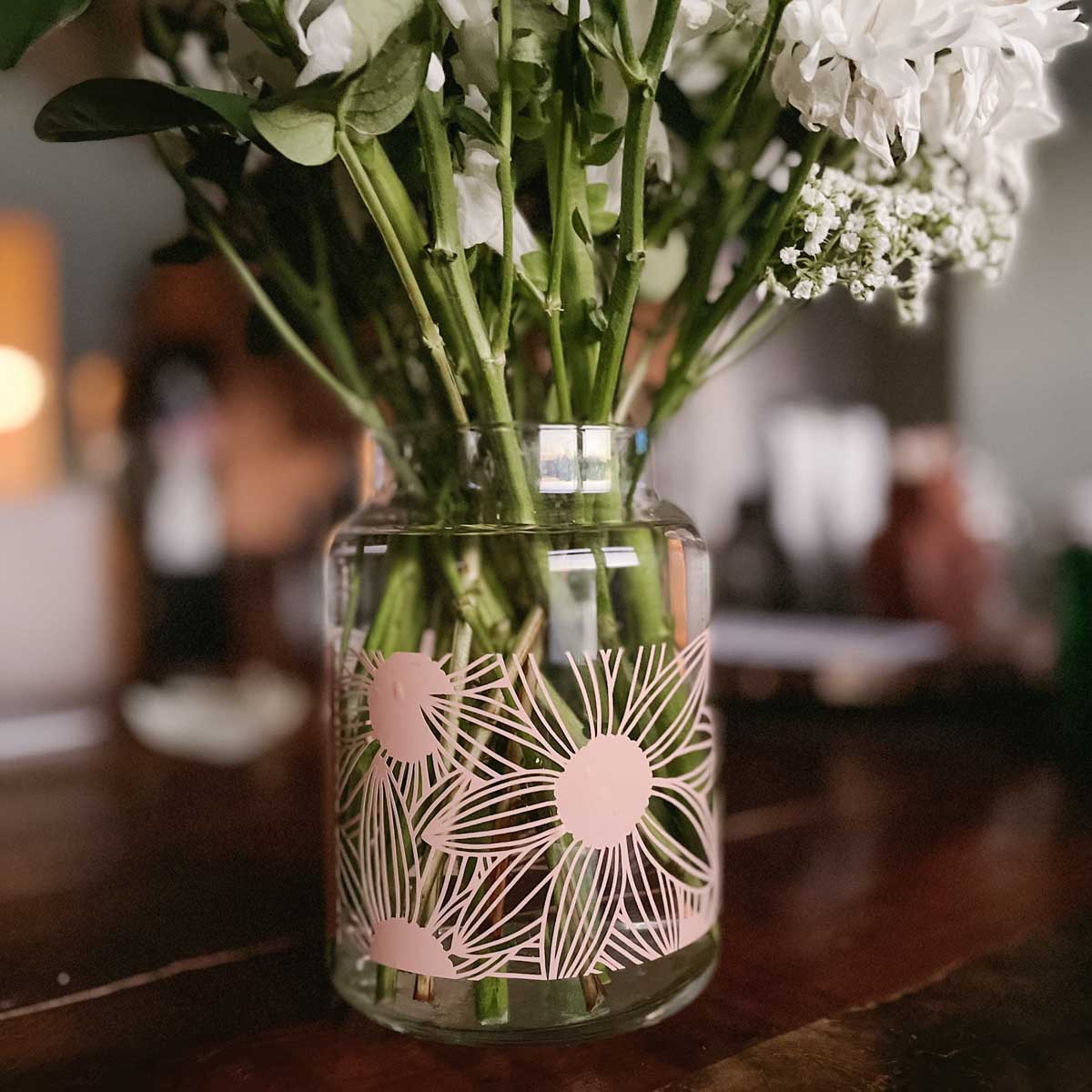
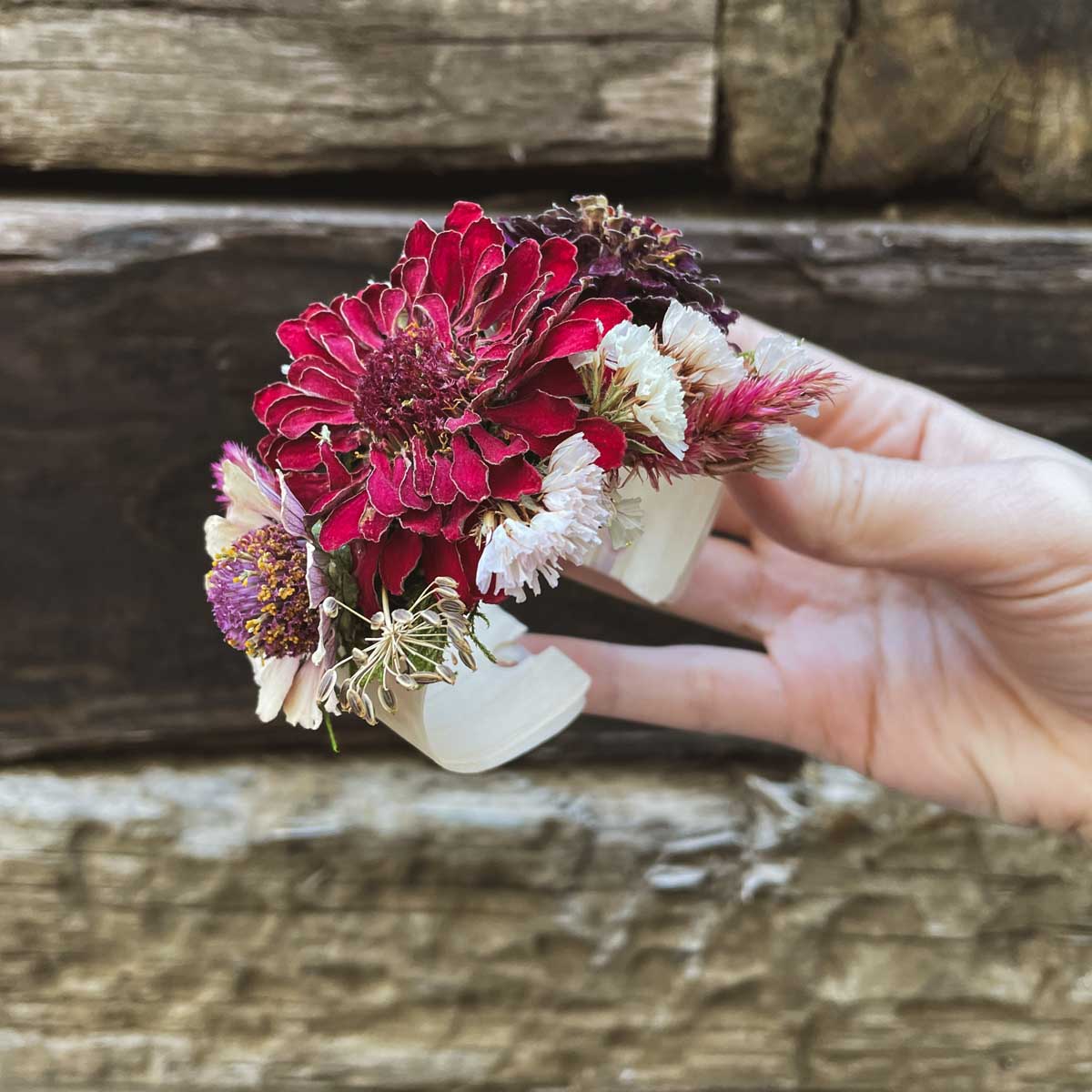
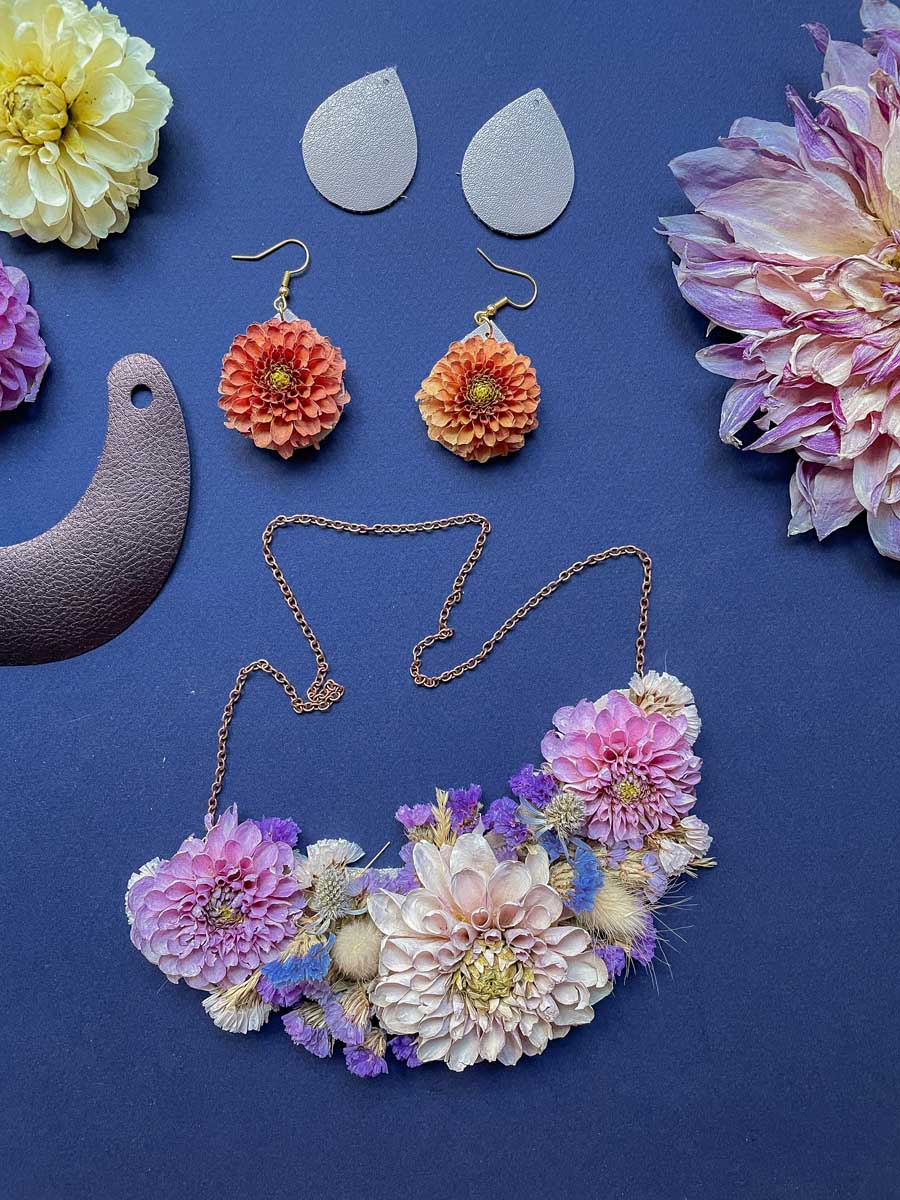
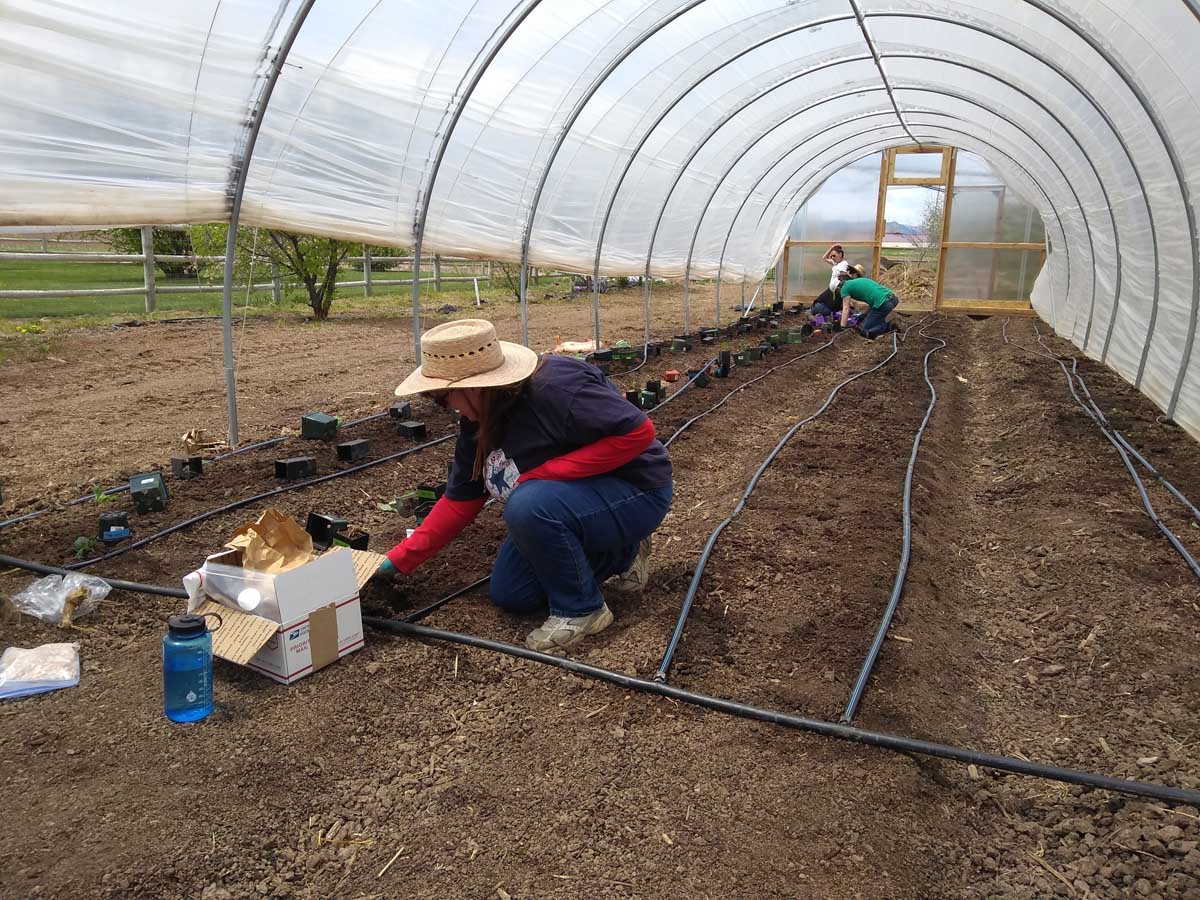
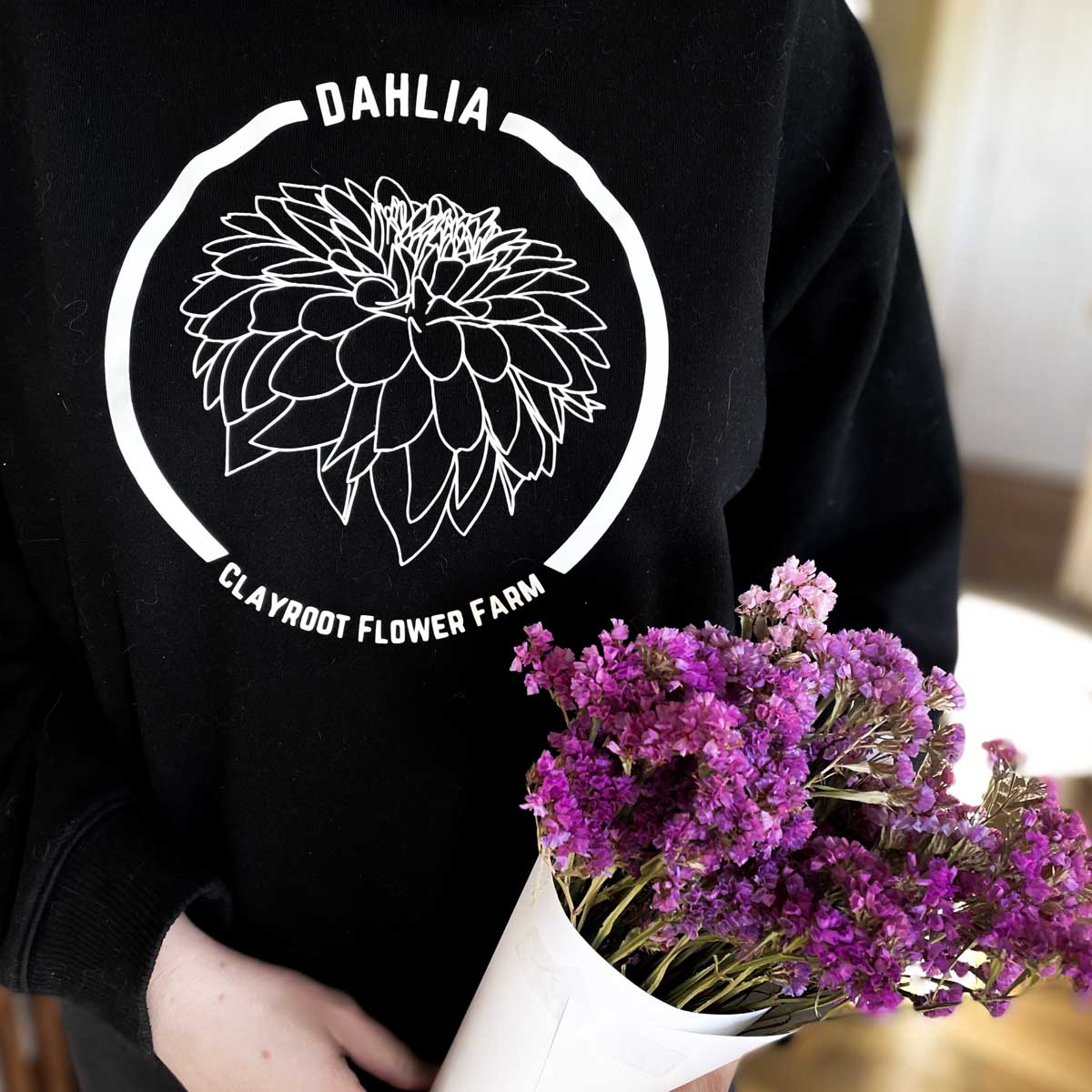
Rebecca’s excitement for STEM could readily be seen in her gardening. There’s science to all the intricacies of keeping a garden alive. How much water? How much sunlight? Ideal varieties for the soil and temperatures at hand? These were things that made gardening appealing to her. Design is just another extension. “I think the scientific application of art is design,” Rebecca realized.
It came full circle. A cidery turned flower farm. An evolution in career paths. A business venture adapted to fit the journey of the adventurer.
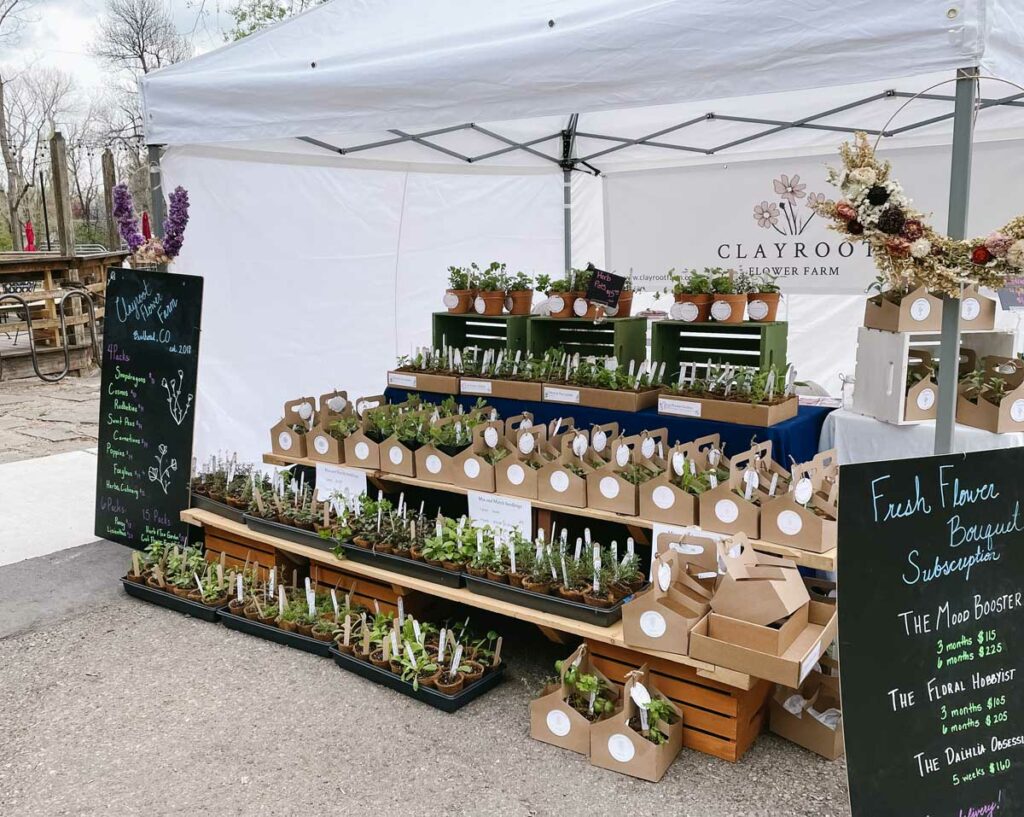
Clayroot Farm has been Ben, Katherine, and Rebecca’s journey for several years now. It turned from the idea of a cidery to the realization of a family flower farm. Adaptation has been a path for growth.
Follow @clayrootfarm to see what Rebecca’s continuing journey with Cricut brings to the business. Or visit Clayroot Farm to learn more about her work and business.
